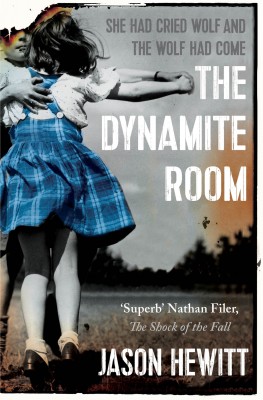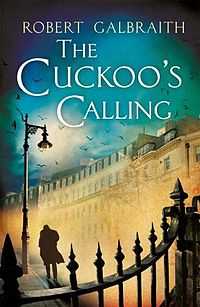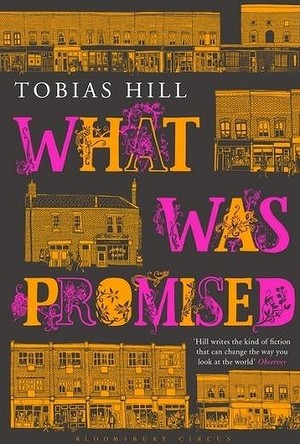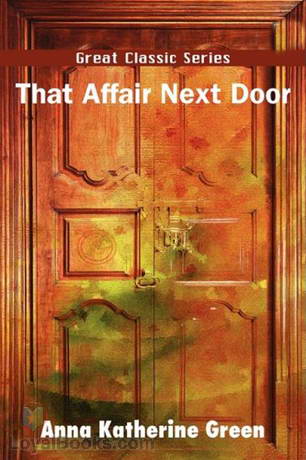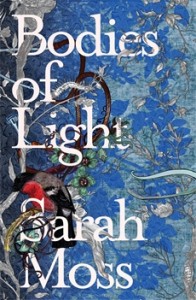It seems like wartime England is the current It-theme for new releases. (Possibly, I only think this because I’ve read a couple of others recently.) So I guess if you’re going there, you need a hook. Here, a young English girl comes to be trapped in a house with a German soldier in a mysteriously deserted Suffolk village. From an intriguing premise, it sadly wanders through unobtrusive prose to some predictable conclusions, without taking advantage of the few surprises it manages to inject along the way. More entertaining than doing nothing at all, but not worth it if better options are available.
I’ve read this before, but Sim’s sister is doing it for her HSC and I wanted to refresh my memory. I did not remember that it was SO TEDIOUS, which is impressive given how short it is. The plot was obviously fairly radical and topical at the time, but being impressed by the concept didn’t provide enough momentum to stop me from joining in when yet another character inevitably longed for the tender embrace of death. Yes! Please! Die and make this book end!
Well, I read this. And…look, it was fine. As a whodunnit, there were a few holes in it, and it trotted out not a few cliches, but sometimes the cliches get to be that way because they’re so good that everyone wants to use them. I probably would have been less underwhelmed with this novel if I hadn’t known it was J K Rowling writing it. But I DID know. I objectively think the Harry Potter books are excellent, and perform a stunning tightrope walk: without being condescending to kids, they imbue a fictional world with a sense of wonder and Dickensian whimsy, while still managing to have a menacing undertone. Without those things, Rowling’s writing just doesn’t reach the same standard we’ve (I’ve) come to expect. I’ll probably read the second one of these (recently released) at some point, but it will be because I lack the imagination to think of something else to do.
Beginning in post-war London, this novel follows the interconnected lives of three families over the course of forty years. I had heard good things about this book and went in ready to like it. It didn’t disappoint in that it was well-imagined, -constructed and -written, but…I don’t know, I did feel it lacked a certain warmth. The characters in particular were beautifully executed, but I felt the book was giving me instructions about how to feel towards them, rather than evoking those feelings. Maybe it’s a small complaint in the scheme of things, but it dampened my reading experience somewhat.
I knew going in that this book featured a first person narrator with dementia, and I expected it to be a frustrating read. What surprised me was that, while frustrating, it wasn’t unpleasant to read, a balance I hadn’t realised was possible. One of the few things Maud, the narrator, can usually remember (with help from the notes she writes to herself) is that Elizabeth, her only friend, has disappeared. Through flashbacks, we also learn about the disappearance, seventy years earlier, of Maud’s sister. It’s sort of a thriller, but best to have someone on hand with a cup of tea and a blanket, because it’s also a proper downer.
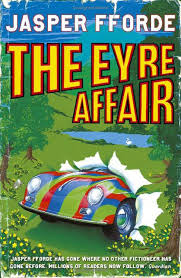
In an alternative 1985, dodos and neanderthals are no longer extinct, the Crimean war is entering its 131st year, and French Revisionists are suspected of tinkering with the Battle of Waterloo. More importantly, the barriers between fiction and reality are not as solid as one might think, and crimes against literature are considered sufficiently serious to warrant a dedicated Literary Detective force. This is the first and best in a series that is pure joy for the repressed Arts grad in all of us, as it tinkers with the rules of logic, history, matter, and reality (and along the way manages to answer the question of who REALLY wrote Shakespeare’s plays). Literary (and artistic and historical) winks and jokes abound; I’ve read it at least ten times and I’m pretty sure I’m still not getting some, having never read “Martin Chuzzlewit” – still, I really believe that even those with minimal experience of the English canon will enjoy these books. Having said that, an acquaintance with the basic plot of Jane Eyre will help.
Well, the clue’s in the name: Garcia Marquez carpets his hero’s final morning with warnings, omens, secrets held in plain sight, reluctant assassins, and the kinds of just-missed opportunities usually found in the penultimate scene of a Shakespeare tragedy, but his death still speeds inevitably towards him. Narrated looking back from years later, the forces at play in this novel(la) are two sides of the same coin, memory and fate, and there’s no real contest about which is the stronger. A perfect intro to this Nobel laureate for anyone who’s confused about whether they’re allowed to like “Cholera” (because paedophilia) and/or doesn’t want to spend literally* a hundred years reading “One Hundred Years”**.
*Not literally.
**Though if you have read “One Hundred Years”, see if you can spot where one of its characters makes a cameo-by-reference.
An example of early drawing room detective fiction that is enjoyable both in its own right, and as a study in the development of the genre on the other (ie Western) side of the Atlantic. Green’s first-person narrator/sleuth is a kind of middle-aged proto-feminist who slips in and out of the archetype of the Meddling Spinster, by turns slightly heroic and slightly absurd. As a police procedural it’s hard to take seriously, but it’s good fun. Although Agatha Christie is said to have been inspired by Amelia Butterworth to create Miss Marple, I think any comparisons between the two say less about the similarity of the characters (who aren’t really much alike at all), and more about society’s conflation of older unmarried women. Recommended for those who loved The Moonstone.
Moss’s glorious female characters are fully formed and morally complex; in this novel, set in 19th century Manchester, they are both products of, and alienated from, their time and place. She seems fascinated by the consequences of parental influence, and is, unlike some novelists, capable of being passionate (or angry) about more than one thing at a time. Now someone just needs to convince her that male characters are worth writing with the same amount of depth (though heaven knows they’ve had enough time devoted to them by her colleagues already). A companion piece to the also-marvellous “Night Waking”.
